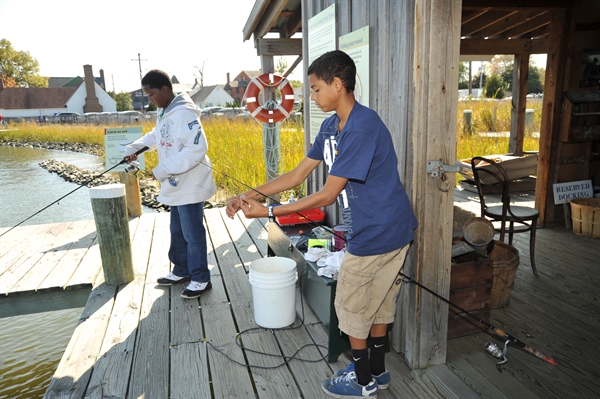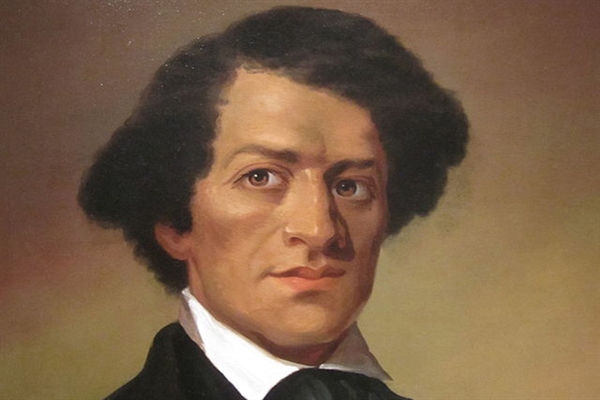Frederick Douglass Day 2025 is on Friday, February 14, 2025: Help! EASY 10 POINTS! Frederick Douglass role in the Civil War?
Friday, February 14, 2025 is Frederick Douglass Day 2025. Chesapeake Bay Maritime Museum Frederick Douglass Day
As an Amazon Associate I earn from qualifying purchases.

Frederick Douglass, the man who became a strong symbol and a vocal advocate for freedom for American slavers, was born into slavery, with the name Frederick Augustus Washington Bailey. His mother was a black slave and father was a white man. He once said that he believed his father was his mother's owner, but later said he did not really know who his father was.
The laws governing slavery, and the relations between white and black were detailed and severe. Whites were not allowed to teach blacks how to read or write. The young Frederick Douglass was taught to read by his owner's wife, Sophia Auld. With his basic reading skills, Douglass then learned more from white children he knew, as well as by observing the world and the people around him as they went about their normal day, using their reading and writing skills.
Douglass escaped from slavery on September 3, 1838, disguised as a free black sailor. Using the other man's identification papers, he boarded a train to Havre de Grace, Maryland. He eventually ended up New York City. His entire escape to freedom took him less than twenty-four hours.
After achieving his freedom, Douglass honed his reading and writing ability. He became a member of a black church in New Bedford, Massachusetts, and he began attending abolitionist meetings. An abolitionist was a person who sought to abolish, or end, slavery in America. The most famous abolitionist in the 1840s was William Lloyd Garrison. Garrison published a weekly abolitionist newspaper called The Liberator. Garrison often gave speeches against the evils of slavery, and Douglass first heard Garrison speak at the Bristol Anti-Slavery Society's annual meeting in 1841. The two men met at this meeting, and each was deeply impressed by the other. Encouraged by Garrison, Douglass agreed to speak at the Massachusetts Anti-Slavery Society's annual convention in Nantucket. Douglass described his life in slavery to this fervent abolitionist audience. His career as a public voice for the abolition of slavery had begun.
Two years later, in 1843, Douglass took part in the American Anti-Slavery Society's "Hundred Conventions" project, a six-month tour of meeting halls and churches the American Midwest and along the east coast. In July, 1848, Douglass participated in the Seneca Falls Convention. This convention, attended by many abolitionists and suffragettes, began what is considered the starting point for the early feminist movement. A suffragette was a person who sought suffrage, better known today as "the right to vote," for women. In the 1800s, women did not possess the right to vote in political elections. Douglass and other attendees to the convention signed the "Declaration of Sentiments", which called more rights for women.
Taking his abolitionist efforts to a new level, Douglass began a newspaper dedicated to the abolition of slavery. He called it the North Star.
Douglass met with President Abraham Lincoln in 1863 and discussed the treatment of black soldiers fighting in the Civil War. Douglass was instrumental in convincing President Lincoln and the U.S. Army to raise regiments of former slaves and free northern blacks to help fight the war and liberate their enslaved brethren in the South. He later met with President Andrew Johnson on the subject of black suffrage. Though the slaves were free after the war, they did not get the right to vote until the 15th Amendment to the U. S. Constitution in July of 1868, over three years after the war's end.
In 1868, Douglass actively supported the presidential campaign of former Army General Ulysses S. Grant, a Republican. After winning the election, President Grant enforced the Klan Act and the Enforcement Act, two laws that aided the newly freed blacks in the South against white Southern attempts to dominate and intimidate them. Among other things, these laws suspended the right of habeas corpus in South Carolina, and allowed the President to send troops into the southern states in order to suppress the Klu Klux Klan, which at that time was using terrorism to undermine the authority of the United States government and to prevent free blacks from voting and using their other newly won rights.
Douglass wrote several books, the best known, and the most influential book he wrote is his autobiography, Narrative of the Life of Frederick Douglass, an American Slave, first published in 1845. It became a best seller in the 1840s, and even today, in the early 21st Century, it is considered one of the most eloquent documents describing slavery, as written by a man who lived, suffered, and eventually escaped from, the cruelty of Southern slavery.

What does this Frederick Douglass Quote mean?
Douglass was making the case for abolition, before the Civil War.
He frequently pointed out the difference between the nobility and idealism of the Declaration of Independence and the Constitution with the reality of actual practice - especially the practice of slavery. The utter hypocrisy of slavery in America - and out latter-day hypocrisy about the legacy of racism slavery gave the country - was a frequent subject of the abolitionists. So was Douglass' scorn heaped frequently on Christians (Catholic and Protestant) who used Scripture to "justify" human bondage.
We can absolutely make similar comparisons today, particularly in the days of the Bush Regime, which has adopted a political perspective roughly the same as that of Rutherford B. Hayes in 1877. (Remember, Hayes ended Reconstruction, blocked political and economic progress realized by freed slaves after the war, and followed a "laissez faire" approach to business and government. Hayes took office in an election that was remarkably similar to the political manipulations that handed Bush the presidency.)
One of the hallmarks of America, on the other hand, is that the nation acknowledges this kind of hypocrisy and struggles with it. When that at last ends, THEN we will need to truly feel bleak about the nation.

what does Frederick Douglass think about Independence day?
At present, it is debatable whether he thinks anything at all, as he died 114 years ago. This is a matter for theologians. In his work, he proposed that Independence Day was a matter of hypocrisy so long as blacks and others were denied equality. This applied very obviously to the period in which slavery was a national institution, but also to the subsequent times, when equality was (and perhaps still is) a distant hope.


























